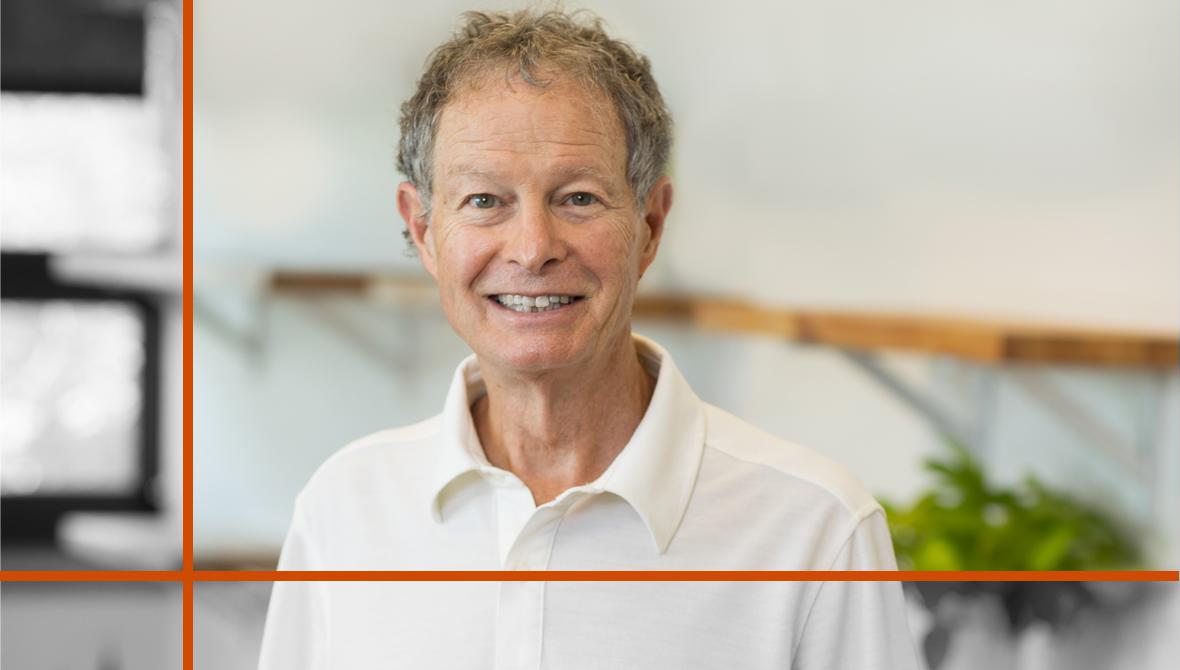From Whole Foods to holistic health: A founder’s story
John Mackey, cofounder and former CEO of Whole Foods Market, shares lessons learned during his 44-year tenure and his vision for the future of health.

This interview is part of the Inside the Mind of the CxO series, which explores a wide range of critical decisions faced by chief executives around the world.
“People asked me how long it took the first Whole Foods Market to be profitable, and I say, till about two in the afternoon [on its first day],” says John Mackey, the company’s cofounder and former CEO. The young hippie–entrepreneur who opened his first store (then called Safer Way) in 1978 in Austin, Texas, could hardly have predicted that the business would grow to become a multinational, multibillion-dollar natural foods pioneer. Acquired by Amazon in 2017 for US$13.7 billion, Whole Foods today has more than 500 stores in the US, Canada, and the UK.
Mackey stepped down as CEO in 2022. During his 44-year tenure, he made an art form of going with his gut and bucking convention, and created a culture of teamwork and independence. Management was decentralized; authority devolved to local stores and team leaders, who, according to the founder, knew their customers best. Whole Foods established animal welfare standards for its related products, and set up the Whole Planet Foundation to fund microloans to entrepreneurs in communities where it sourced products.
Of course, it wasn’t all smooth sailing. Mackey’s time as CEO included leadership challenges from activist investors, the board, and even his own father. Ultimately, the flip side of his success at taking organic and natural foods mainstream was that the business eventually faced increased competition from some traditional supermarkets and even Walmart, which undercut Whole Foods’ prices.
Mackey, who recently published a business memoir (The Whole Story: Adventures in Love, Life, and Capitalism), talked to strategy+business about the role of community in business, the thinking behind the Amazon acquisition, and how his vision for the future of health inspired him to lead a startup at age 70.
Edited text and video of the interview follow.
S+B: Your first store in Austin nearly went under, literally, due to an unprecedented flood, and the community rallied to support Whole Foods. How did this shape your leadership?
MACKEY: We had built that store in what’s called the 100-year flood zone. And when I was talking to the landlord, he said, “Well, John, it means that about once every hundred years you’re going to be eight feet under water.” And I said, “I’ll take those odds.” Problem is, we had the 100-year flood in the first year. Everything was a complete loss: the equipment, the inventory.
But the most amazing thing happened the next day. Our team members came to work, and they were helping us clean up the store and I’m looking around and I see some familiar faces, but they don’t work for us. It was our customers. They’d heard about what had happened, and they came in to help us clean up the store. A lot of them worked day after day. And our suppliers were willing to front us more inventory on credit. The investors put in a little bit more money, too. A banker personally guaranteed our US$100,000 loan. Amazing. It took us 30 days to reopen.
Whole Foods should have died in our first year, and I didn’t have the word for it back then, but the stakeholders saved us. Our customers, our team members, our suppliers, our investors, the bank, the community that we were part of didn’t let us die.
I realized that we were an interdependent network of relationships. And they cared about us. They didn’t want us to die. It changed Whole Foods forever, because from that point onward, we began to take seriously each one of these different relationships and to try to do right by them, to create value consciously for all these different stakeholders.
S+B: Jumping forward to 2008, the financial crisis was another perilous moment for what, by then, was a very big company. Looking back, is there anything you would have done differently during this period?
MACKEY: That was one of the real inflection points for Whole Foods. Our stock price dropped 90%. We were so vulnerable to a hostile takeover that we went out and got friendly money to put into the company to prevent that. We still got shareholder activists that came in. But the stock rose so much that they sold out pretty quickly and didn’t make problems for us. Our stock began to climb out of its low point to go on to new heights and recover, not only the full 90% it had lost, but to go up three or four times higher than that over the next few years.
But we missed the best opportunity we ever had in the history of the company to lower our prices. We were starting to get more competition. What we could have done and should have done—and it’s my single biggest regret as the CEO—was lower prices into that [stock price] climb. Our stock wouldn’t have gone as high. We wouldn’t have created as much short-term shareholder value. We’d still be an independent company today, I think, if we’d done that.
S+B: Why, ultimately, did you decide to sell, and why Amazon?
MACKEY: We needed to combat the narrative about [the nickname] “Whole Paycheck,” which was really hurting us. We needed to drop our prices. But as a public company, if you’re selling something for a dollar and you start to sell it for 90 cents, in the short run, your sales go down, your [comparable store sales] go down, your profits go down, and your stock price goes down. And that’s very difficult to handle in a marketplace that’s focused on quarter-to-quarter [results].
Amazon let Whole Foods drop its prices four times in the first two years. That is long-term thinking. And it was a very good decision. I very seldom anymore hear the “Whole Paycheck” narrative; it’s maybe not completely disappeared, but it’s no longer the lead when people talk about Whole Foods, and Amazon made that possible.
S+B: In The Whole Story, you say you had some misgivings about the Amazon acquisition. Do you still feel that way?
MACKEY: I regret the circumstances that made selling to Amazon the very best option. If I had to go back in the same circumstances, though, we’d make the same decision. Our shareholder activists told us, “We’re going to take over your board, fire your management team, and sell the company to the highest bidder.” I thought we could resist. That was one of the paths not taken. But we needed time to turn our business around. We needed to lower our prices, and that was going to be painful. The other option we had was to go private, but that would have taken us billions and billions of dollars in debt.
I woke up one morning and I thought, “I wonder if Amazon would be interested?” And I got super excited because I admired Amazon. I admired Jeff Bezos. We had a tremendously good connection. So, we contacted Amazon to see if they’d be interested. They were very excited about it. It happened pretty quickly. Six weeks after our very first meeting, we signed an agreement to merge.
But I always wonder if we’d fought, could we have stayed independent? At the time, my job was to look for the win–win–win solution for the stakeholders, including the investors. This [ended up being] a good thing for our customers. We lowered prices four times in the first two years. It was good for our team members. They all got a raise. It was good for our suppliers because we continued to do business with them. Amazon.com picked up many of our suppliers. It was good for our shareholders because they got about a 40% price increase. So, it was truly a win–win–win.
S+B: Forty-four years is a long tenure as CEO by any standards. How did that contribute to Whole Foods’ success?
MACKEY: There’s an investment philosophy that has proven to be very successful, which is investing in founder-led companies, because the founder loves his or her company and they’re thinking long-term with it. It’s their baby. They want to help it grow up and nurture it.
What happens as corporations get older and the founders retire [is] you hire professional managers or they’re working with the company and they move up the hierarchy. And it’s an unfortunate truth that most CEOs in most big public corporations maybe will only be the CEO for five, six, seven years. That’s kind of the average tenure. So they don’t see the long-term horizon and ask what’s going to be really good for the organization ten, 15, 20 years from now.
You take a big risk when you bring an outsider in. Sometimes it’s necessary to do that because the company needs to be shaken up. Culture needs to be changed and challenged. But long-term thinking is one of the things that might be sacrificed when you do that.
One of the things that most impressed me about Amazon—and one of the reasons I wanted Whole Foods to join Amazon—is it was very obvious to me that Jeff Bezos thinks really long term. He doesn’t think quarterly, annually. He doesn’t even think five years ahead. He’s thinking ten, 15, 20 years down the road.
S+B: PwC’s Voice of the Consumer Survey 2024 found that respondents were willing to pay 9.7% above average price for sustainably produced or sourced goods. What do you take away from your experience of having sold organic and specialty foods at a premium?
MACKEY: When you put it in a hypothetical, people tend to be a little bit more caring. But when they’re faced with choices in the store, they don’t always act as idealistically because they have a scarcity of money and they have to make a trade-off. You have to think about people being on a continuum of not only wealth, but idealism. Some people will pay a lot more. Some won’t pay a penny more. So, it just depends on the person.
Whole Foods spent a lot of time and money creating our five-step animal welfare program, which had different levels of welfare. The better the welfare, the more we charged for the products. The most idealistic people were vegans. They didn’t want us selling any kind of animal foods at all. Then you had others who didn’t think twice about paying more for the best, highest degree of welfare. And they were probably very wealthy people who just didn’t look at prices. And then you had other people who wanted to buy higher, better animal welfare, but they were angry because they thought it was too expensive. And then you had others who didn’t care about that, but how does it taste? You have this spectrum of diversity of income, idealism, commitments. So we had different solutions for different customers, and it seemed to work pretty well. It still works pretty well for Whole Foods.
S+B: As you look to the future of food and health, what do you see as the role of technology?
MACKEY: We have technology now that can raise cellular meats. You can grow beef or chicken basically in a factory and it’s bioidentical. That’s a huge improvement, ethically speaking—animal foods without animal suffering.
I’m super excited about a lot of the technological innovations that are occurring in health. We now have the technological capacity to understand how healthy each individual is. We can create a baseline and with Apple Watch and Oura Rings, different types of continuous glucose monitors, we’re able to monitor people’s health almost minute by minute. As that improves, we’re going to have more and more data about each individual. And for the first time, we’re actually able to help people become the healthiest version of themselves. Technology is making this possible, and AI will aid that. It will help improve diagnosis for any kind of illness and work alongside doctors.
For the first time, we’re actually able to help people become the healthiest version of themselves. Technology is making this possible, and AI will aid that.”
I’m very much an optimist that technology, while it does cause some problems overall, lifts humanity up. I have every reason to believe that humanity is going to be far healthier and far better off 20 years from now than it is today.
S+B: How are you applying this vision to your new venture, Love.Life—the integrated health and wellness startup you launched in 2023?
MACKEY: Love.Life in some ways is just a continuation of the higher purpose I had with Whole Foods—to help people be healthier—but Whole Foods was just about food. We’re going to open these large, one-stop holistic health membership clubs. The first will be in the Los Angeles area. It’ll be located in a center where Whole Foods has a very successful store. We’ll have a healthy restaurant, a state-of-the art fitness center, and a really nice spa. [Editor’s note: It opened this month.] We’re going to have all these recovery modalities, alternative health treatments. We’ll have three pickleball courts, and also a medical center.
The whole vision of it is that we’ll test our members, find out their baseline health, and then [help them] become their healthiest possible selves—physically, but also emotionally and spiritually—as a community of people dedicated to personal growth, wellness, and health.
I’m really excited about it. It’s going to be beautiful. It’s going to be a very special place. It’s going to be fun. I’m back on an adventure again. I’m back in startup mode. I’m an entrepreneur again, not running a huge corporation. I’m creating something new with my friends, people I love, people that helped create Whole Foods.
S+B: How is it different launching a startup today and at 70, as a more seasoned CEO?
MACKEY: I know a lot more now at age 70 than I did when I was 24. And I didn’t have any money when I was 24. Now I can invest in this business myself. I am less beholden to outside investment. On the downside, I have less energy. I’m not going to do the same kind of 80-hour workweek.
But from an external standpoint, the biggest difference is that Whole Foods [initially] flew under the radar. Nobody paid attention to us for about 20 years. I expect people to be paying attention to Love.Life from the very first day we open. The internet didn’t exist when we started Whole Foods. There was no social media. There were no smartphones. Good ideas today are quickly discovered, quickly copied, and quickly iterated upon. That’s a good thing. Capitalism is even more dynamic than it used to be.
Author profiles:
- Michael Brewster is a director with PwC US.
- Shana Ting Lipton is a senior editor of strategy+business.



